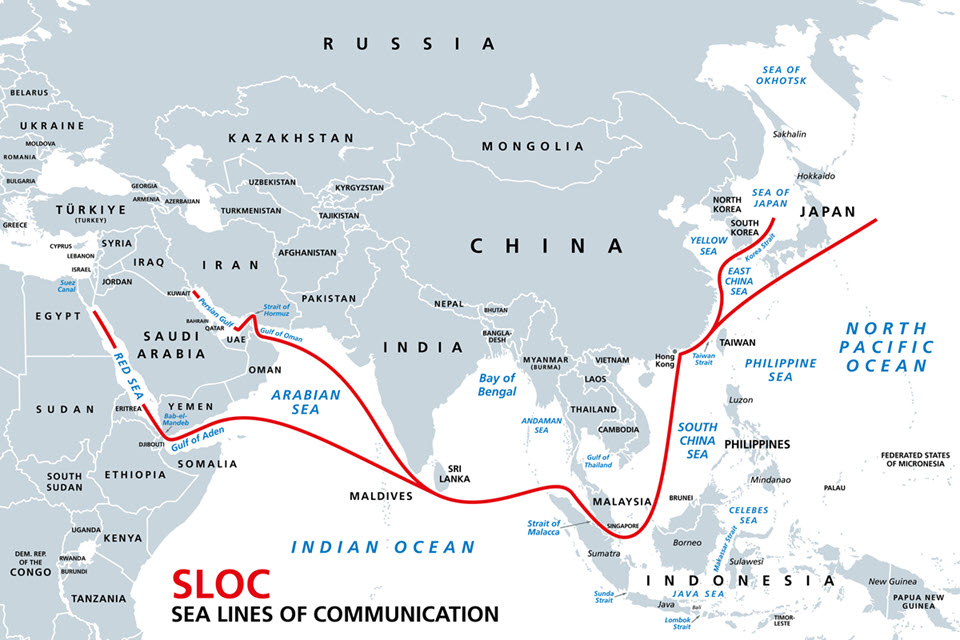Episode 140
Middle East Unrest Heightens Tea Logistics Concerns for Transit via the Straits of Hormuz and Suez Canal | Just Ice Tea Raises $14 Million to Expand Distribution | Wagh Bakri Tea Executive Director Parag Desai, 49, Dies Fleeing Stray Dogs
PLUS | Tea Biz traveled to Tanzania last week to explore the tropical Usambara tea-growing region. There, I met with smallholder farmers, tea makers, traders, tea sellers, members of the Tea Board of Tanzania, and a tiny cooperative of 14 families deep in the jungle who invited me to watch as they hand-rolled and wood-fired organic black tea that always sells out on “market day” in the local village. I recount my adventure beginning today with Tahira Nizari, a savvy business school graduate and humanitarian who founded Kazi Yetu in 2018. This specialty tea brand advances the role of women in Tanzania’s tea industry.
Tea News for the week ending Oct 27
Powered by RedCircle

Middle East Unrest Heightens Tea Logistics Concerns
By Dan Bolton
Tea shipping and logistics executives are closely monitoring Middle East unrest as tea sales to the region declined.
Immediate concerns involve insurance premiums and pricing risk, but if Iran-backed Hezbollah escalates the Hamas conflict, Israel will likely retaliate against Iran. The Islamic Republic’s navy (IRGCN) has increasingly harassed international vessels, with 20 incidents in the past few years, including the seizing of tankers in the Strait of Hormuz (which spans Oman and Iran), a route traveled by 30% of the world’s oil and much of the world’s tea.
Due to the violent and volatile Hamas-Israeli conflict, sales of orthodox tea at India’s Kochi Auction declined to 70% of the 2 million kilos on offer. Though Israel buys negligible quantities, exports to other destinations through the Suez Canal will be hit, according to a report in the Hindu BusinessLine.
See: Middle East Conflict Threatens Global Growth (NYT)
Traders who spoke to the newspaper cautioned, “Shipments to destinations through the Suez Canal are likely to be hit on account of the war.”
They anticipate a further decline in demand and disruptions in tea procurement if the situation worsens.
Iran is the center of attention.
Normally a discerning trading partner with a preference for orthodox black tea, imports to Iran spiked last year yet, “At the moment, there are signs that Iran does not have enough teas to last through the winter season,” writes one trader.
In an attempt to stockpile supplies, tea imports during the past fiscal year (ending March 30, 2023) rose to 90 million kilos. Payments, complicated by economic sanctions, are now past due. “So far, we have no clear import support from the government. As a result, a lot of teas consigned for Iran are stuck in Dubai and Kenya,” writes the Iran-based trader.
Compounding the self-inflicted shortage is that domestic production declined to 20 million kilos this year.
Iran produced about 26 million kilos last year, exporting 10,000 metric tons valued at $44.2 million, according to the Iran Customs Administration (IRICA), which valued imports at $665 million through March 30, 2023.
Imports recovered from the pandemic to reach 35 million kilos in 2022. In the fiscal year ending March 2021, the country imported 21 million kilos valued at $201 million. India accounted for $96 million of tea imports. Sri Lanka shipped $75.8 million worth of tea to Iran, and Kenya shipped $19.2 million to round out the top three tea suppliers.

Episodes 1-49
Episodes 50-96
Episodes 97-140
Powered by RedCircle

